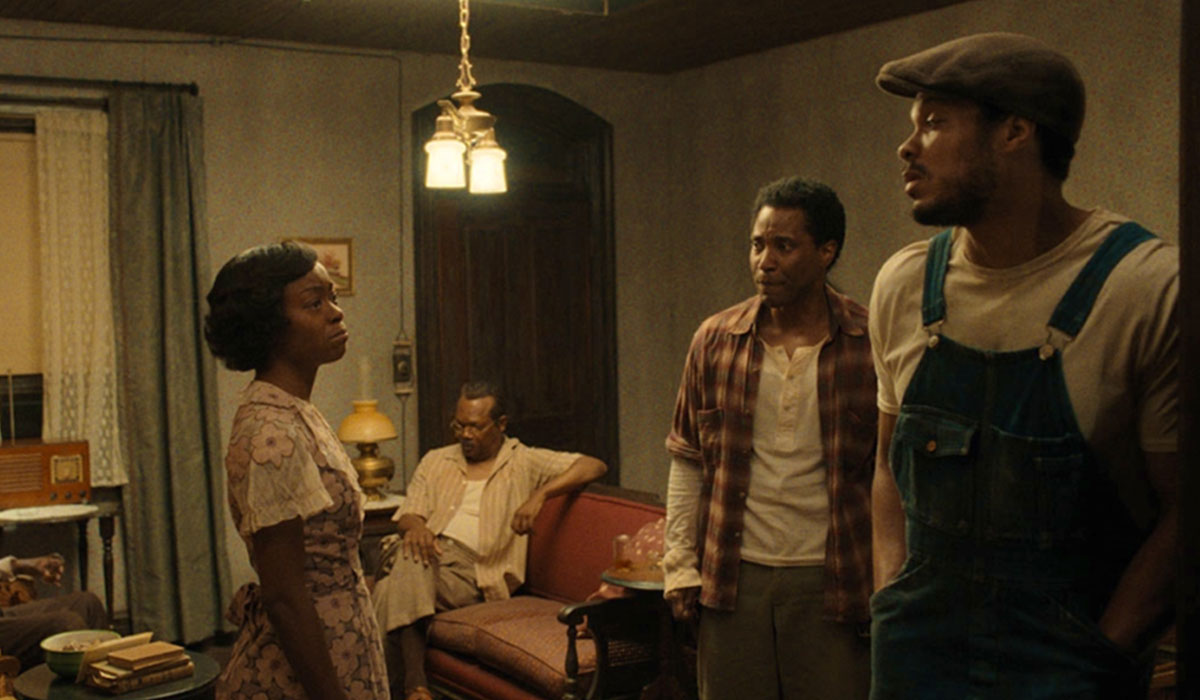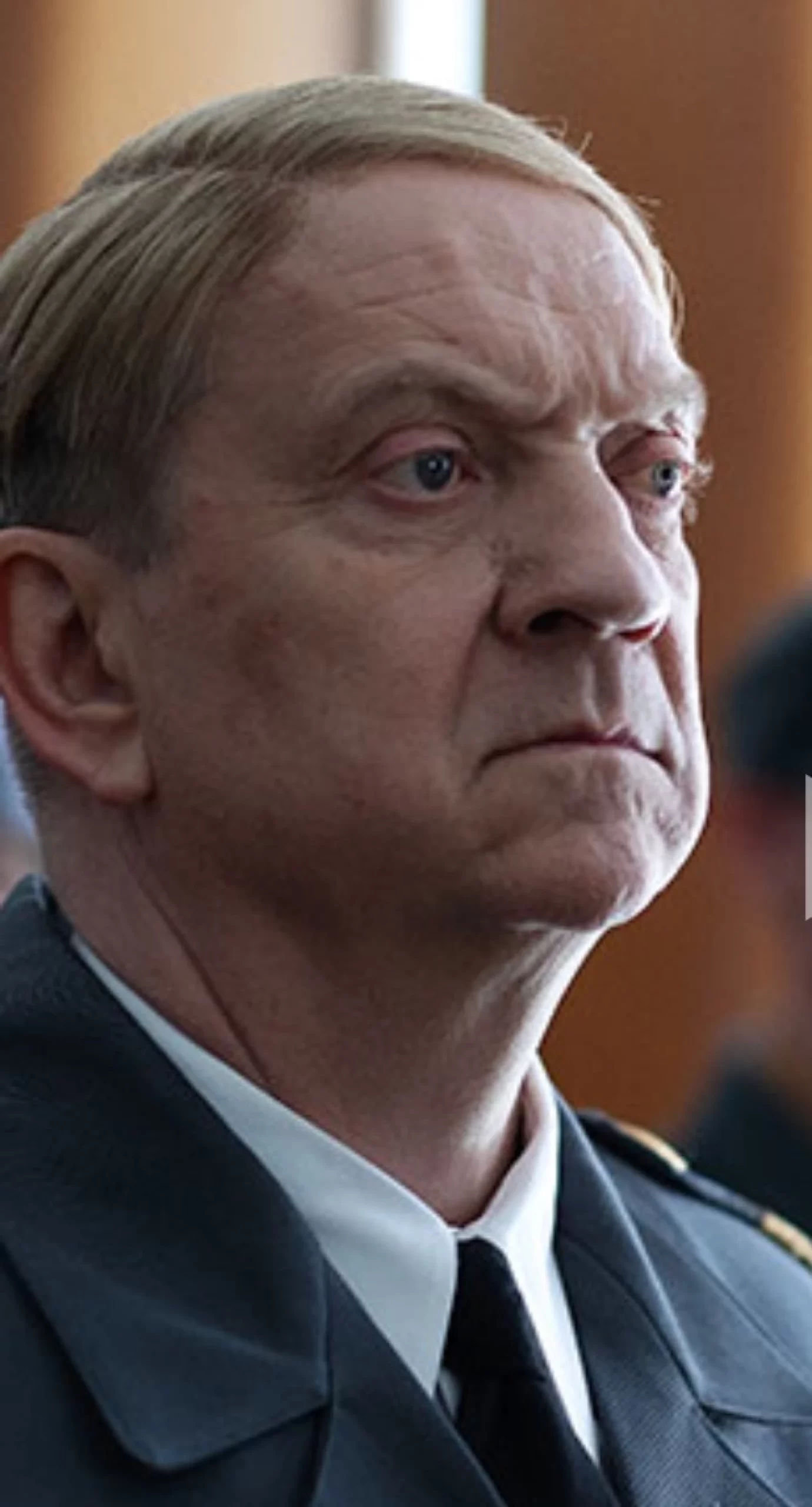Harlan Jacobson – September 18, 2024
The 49th Toronto Film Festival has been productive and well executed, as the media, the business people and the very enthusiastic public – some might say they never met a picture they didn’t like — were in good supply. There were a few great films, some good films, and its share of misfires, as Toronto settles into place from its once dominant position as the awards season launchpad of big pictures as now one of the three or four key fall festivals – Venice, the current favorite of Hollywood, Telluride and New York.
El Jockey, or Kill the Jockey, by director Luis Ortega is an Argentine film about a heedless horseman. Remo is a jockey on the skids gone gonzo crazy into a spiritual crisis. We meet him in his jockey togs passed out in the seediest of bars, stirring to life when his internal metronome tells him he’s due at the track. After a great run as the premier Argentine rider of all time, Remo now never sees a liquid he can’t chug, or a powder he can’t snort, that is until he’s got a horse to ride and he unfailingly mounts a swagger through the corridors of El Hipodromo, Bueno Aires’ premiere racetrack, to ride again.
Early on we see him in the gate eyeing the lesser two-legged life forms, known as the other jockeys, atop other horses. The bell rings, the gates snap open, Remo somersaults backwards into a face plant in the dirt. As a miracle jockey who could ride on water, he gets one more reprieve from Sirena, a mob boss and gentleman racehorse patron played by ace Mexican actor Daniel Gimenez Cacho, who’s imported a million-dollar horse from Japan named Mishima, foreshadowing a kind of racetrack seppuku of what’s to come. There’s just something about being two lengths in front on the far turn that Remo can’t handle and so undertakes the unlikeliest of disappearing acts from where he lands in a hospital ICU. He wakes up in a mummy’s concussion turban, grabs a mink stole, grabs a purse, smears on some lipstick and takes off looking like Queen Nefertiti on the lam. And he is—both from Sirena’s men, and his lover Abril, also a jockey who is pregnant and weighing her and her baby’s future. Welcome to 2024.

A scene from El Jockey
There are sublime and hilarious sequences in Kill the Jockey, and a spiritual quest in a stupor. There is great art in the script by Rodolfo Palacios and Fabian Casas that plays out in the deadpan, modern minimalist styles of Jim Jarmusch, Rainer Werner Fassbinder and Aki Kaurismaki, and the straight-on cinematography of Timo Salminen. And there is the central performance of Remo, by Nahuel Perez Biscayart, whose direct antecedent is Roberto Benigni from Jarmusch’s Down By Law and everything else Benigni has ever done, all the way back to the great silent comedies of Chaplin, Harold Lloyd and Buster Keaton. This is not to ignore his co-star, a pansexual jockey played by Ursula Corbero. They both drove me mad with desire and respect for their drive to redefine victory, supported by a cast of Buenos Aires mutants, works of art all of them, especialmente Daniel Fanego, the mob’s enforcer who springs from one’s night terrors like a killer oak tree with a knot for a face – only funny.
To my knowledge the film hasn’t been picked up. Any of you out there with money to gamble of a horse, get in touch with me and we’ll form a syndicate to take this film to the races.

A scene from The Piano Lesson
Now comes the Washington family, this time led by Malcolm Washington, Denzel’s son, making his debut as a director of The Piano Lesson, a film adaptation of the play, which had a successful revival on Broadway two years ago. It’s the latest in Mt Vernon, NY native Daddy Denzel’s film revival of the Hill District plays of August Wilson. I saw Denzel in 2014 in Fences on Broadway, which was essentially a focus-group production by ace Broadway and film producer Scott Rudin, to see about moving forward on a film that Denzel later winningly made two years later about black family life, fathers, sons, baseball, and the women who were always at home plate, it seems, when the men struck out.
Written in 1986, The Piano Lesson concerns the Charles family and the fate of a piano that stands in the parlor of their 1936 Pittsburgh home. It’s a dark rich upright with carvings on the upper panel and sides of the faces of family ancestors as slaves. The piano passed between two white families in Mississippi in exchange for 1.5 Negro slaves, a young mama and son, the half being the son and later grandfather whose loss shattered the Charles family. When the piano came back to the family, a relative carved into it the family portraits. And the piano now sits in the home of the great granddaughter, Berniece, who doesn’t play it – her young daughter’s dabbling on it – but has preserved it as an ancestral legacy.
As the story unfolds, Berniece’s resourceful but decidedly unruly brother, Boy Willie, played by John David Washington, another of Denzel’s kids, arrives unannounced and unwelcome from down South with a truckful of watermelons to sell as part of his scheme to also sell the family piano and use the proceeds to buy the plantation where the family were slaves. Rambunctious, brash, a boogie-woogie guy in a downbeat decade, Boy Willie means to become his own man on a blade of irony and revenge. The Piano Lesson’s family fight unleashes the ghost of the plantation master into the well-kept Pittsburgh house’s second floor and revives the rumor of the ghost of the yellow dog down south that seems to have dispatched more than one white slave holder’s progeny down a plantation well.
Danielle Deadwyler as the sister Berniece, is both a strong woman decades ahead of her time, a cautious mother and conservator, but also a black woman forced to see that the time for exorcising the white devil has come. Deadwyler was denied a nomination for her performance as Mamie Till in the story of Emmett Till in 2022. Perhaps a nomination will come her way this year.
John David Washington plays Boy Willie as if he’s still onstage reprising the role he originated there, a little too hot in projecting externally to the back row of a theater he’s no longer in. He might have looked over at Samuel L. Jackson, reprising his role as Uncle Doaker, the reluctant family peacekeeper, to better temper how internal cinema response is put across in a movie theater.
Washington patriarch Denzel is a producer of The Piano Lesson, on which another daughter, Katia Washington, is executive producer. It’s a family affair You can find The Piano Lesson on Netflix on Nov. 22.
Quisling: The Final Days, by Norwegian director Erik Poppe, is a film that comes out of the woodwork, unanticipated, not on the radar, that shows up at festivals off to the right when the media-festival complex is looking to the left. American Fiction last year here at Toronto was not a must-see until the buzz built for a film no one anticipated. Because Quisling is about the disgraced and executed WWII Norwegian Minister President, Vidkun Quisling, who formed a government that collaborated with Hitler, and in Norwegian, it won’t have the career in the US that American Fiction did.

A scene from Quisling: The Final Days
But it’s the kind of great film that turns up unannounced at a festival that pays for a multitude of cinema sins. Crafted by Poppe, a prolific Norwegian director, writer and cinematographer, Quisling The Final Days recounts the period the Minister President — whose legacy is his name added to many languages to mean collaborator — spent in prison through his trial and execution, when a young pastor, Peder Olsen, gets the assignment his Church superiors don’t want: be Quisling’s prison pastor, and lead him to Confession. Over nearly 21/2 hours what follows is an intricate and intense battle between senior politician and junior cleric on the nature of political power, morality, truth and responsibility. Quisling pleads he did the best he could for Norway, that Nazi Germany represented a bulwark against the Bolsheviks at the door, damn the details. It’s the details for which the prosecutor at trial holds him accountable and for which the pastor in the cellblock insists on his admission of guilt. Poppe, the film’s director, sees Quisling alive again in the rise of the neo-fascist leaders in Europe and the US.
Poppe’s Quisling brought to mind the tragedy of Knute Hamsun, Norway’s great Nobel Prize winning novelist, who also initially supported the Nazis in Norway. His bugaboo was ending two centuries of British domination, not the Bolsheviks on the border. Jan Troell memorialized this chapter in a superb 1996 film, Hamsun, with Max Von Sydow as the laureate who too late comes to his senses and goes to Berghoff, Hitler’s mountain retreat, for an audience to plead for Norway. Distracted, Hitler bounces a cute little girl on his knee and dismisses Hamsun as a nuisance.
Add Gard Eidsvold and Andreas Danielsen Lie’s struggle as Quisling and the Pastor to the list of great two-man morality struggles, but particularly Eidsvold to the list of great actors – Alec Guinness In Hitler The Last 10 Days and Bruno Ganz in Downfall, among others – whom you can’t look away from as they prosecute your destruction.
IMDb is the world’s most popular and authoritative source for movie, TV and celebrity content. Find ratings and reviews for the newest movie and TV shows. Go to IMDb »
